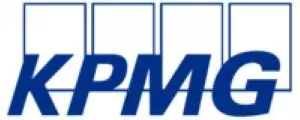On 17th December 2019, regulations to transpose Directive (EU) 2018/822 on mandatory disclosure rules ("DAC6" or "MDR") were published in Malta enacting new mandatory exchange of information obligations on intermediaries and taxpayers. It is expected that its wide scope and mechanisms, which rope in intermediaries and service providers in an unprecedented manner, will drastically increase transparency and cooperation throughout the EU.
What's the scope of the MDR?
The MDR addresses cross-border arrangements that satisfy any of the specific hallmarks. Taxes of any kind are within the scope of DAC6 with the exception of VAT, customs duties, excise duties and social contributions.
The hallmarks may be split in two, that is, those that are accompanied by the main benefit test, that is, an additional test analysing whether the main benefit(s) of the cross-border arrangement in light of the relevant facts and circumstances is that of obtaining a tax advantage, and others that are not accompanied by this secondary test.
Hallmarks applying the Main Benefit Test:
General Hallmarks
- Confidentiality Criteria
- Contingency fees
- Use standardised documentation
Specific Hallmarks
- The acquisition of loss-making companies
- The conversion of income into a lower taxed category
- Circular transactions
Cross Border Transactions
- Deductible payments to associated enterprises where the recipient is in a no-tax jurisdiction
- Payments benefiting from a full exemption or a preferential tax regime
Hallmarks not applying the Main Benefit Test:
Cross-Border Transactions
- Deductible payments to an associated
enterprise that is:
- not tax resident in any jurisdiction
- tax resident in a black listed country
- Multiple deductions of the same depreciation in different jurisdictions
- Double tax relief on the same item in multiple jurisdictions
- Transfer of assets with significant differences in amounts treated as consideration
Automatic Exchange of Information and Beneficial Ownership
- Arrangements undermining the reporting obligations under CRS or FATCA
- Arrangements that make the beneficial owners unidentifiable
Transfer Pricing
- Arrangements applying unilateral safe harbour rules
- Transfer of hard-to-value intangibles
- Transfers of functions, risks or assets resulting in an EBIT decrease of more than 50% in the next 3 years
Who will be affected by the new rules?
MDR obliges both primary intermediaries, that is promoters, (including any person who designs, markets, organises or makes available for implementation), and secondary intermediaries, that is service providers (including anyone who knows or could reasonably be expected to know) of a reportable cross-border arrangement to report such information to the local tax authorities. Taxpayers may also be affected by MDR in the event that the reportable cross-border arrangement is not reported by the involved intermediaries (for example when there is no EU based intermediary, when no intermediary is involved, or when the intermediary relies on legal privilege).
When is reporting due?
Reportable cross-border arrangements whose first steps of implementation took place between 25th June 2018 and 1st July 2020 must be reported by 31st August 2020. However, as from 1st July 2020 MDR will enter into force and henceforth a 30-day reporting deadline will apply. The first exchange of information will occur on 31st October 2020. Failure to report on a timely basis will incur penalties that are capped at EUR 20,000.
How can KPMG help?
We can help you by:
- Analysing your cross-border arrangements, both retrospectively as from 25th June 2018 and monitoring your transactions going forward to assess whether such arrangements are reportable and determining where reporting responsibility will reside;
- Assisting with reporting through the KPMG technology solution; the MDR Processor tool; and
- Providing training to corporate services providers, lawyers, bankers and other intermediaries, and specialised in-house training.
The content of this article is intended to provide a general guide to the subject matter. Specialist advice should be sought about your specific circumstances.




